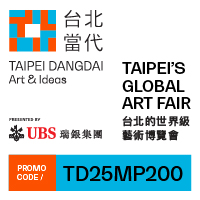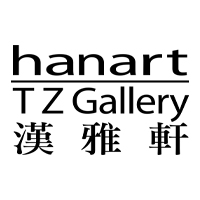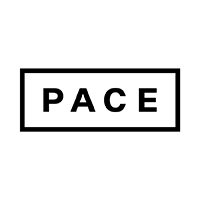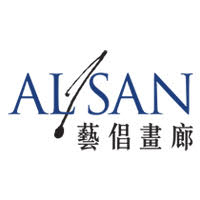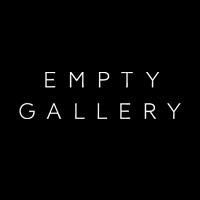Reactions to the Cancellation of Art Basel Hong Kong 2020
By HG Masters
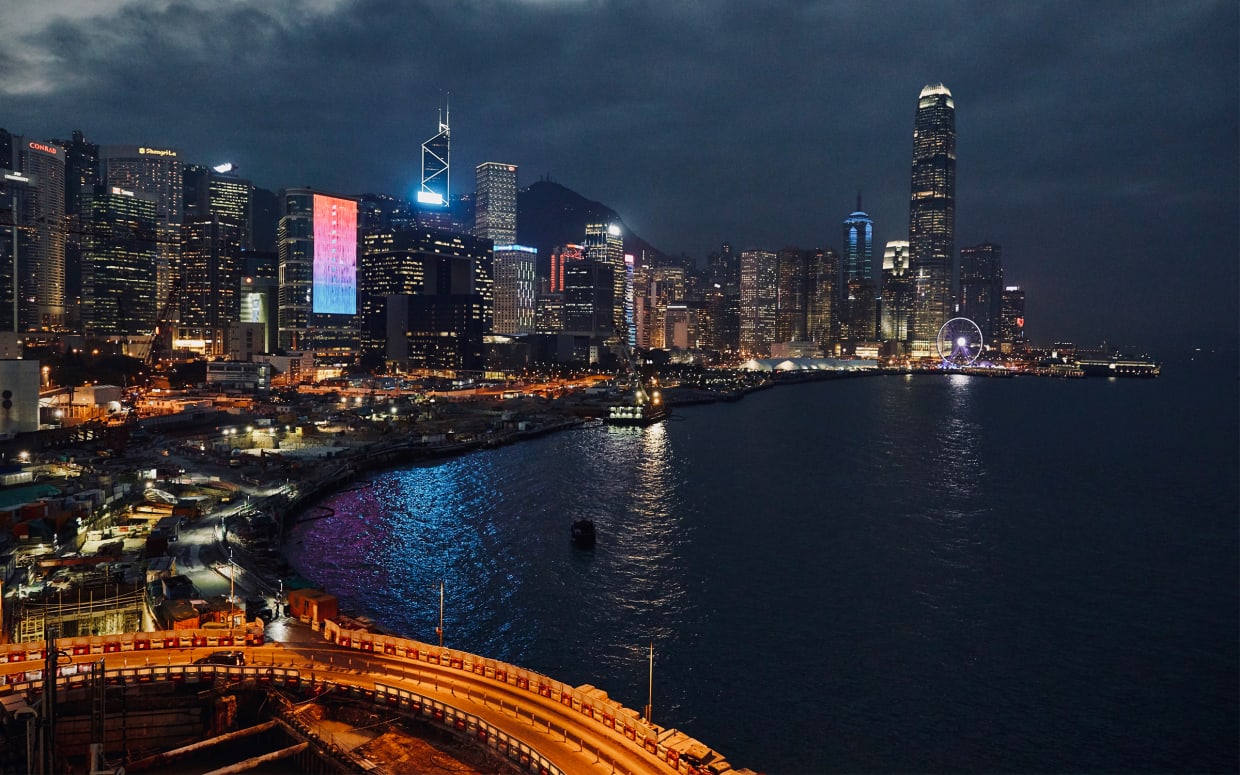
The Hong Kong Island skyline seen from the Hong Kong Convention and Exhibition Centre. Courtesy Art Basel.
After weeks of speculation, anticipation, and plans held in limbo, the official announcement from Art Basel was sent out at 5am Hong Kong local time on Friday, February 7. The Hong Kong edition of the fair, scheduled for March 19–21 at the Hong Kong Convention and Exhibition Centre (HKCEC) had been canceled “due to the outbreak and spread of the novel coronavirus.” As Art Basel global director, Marc Spiegler, and the fair’s Swiss parent company MCH Group’s CEO, Bernd Stadlwieser, were both quoted as saying, in each of the two companies’ respective announcements, the decision was “an extremely difficult one.” The fair had “explored every other possible option,” including postponing until later in the year—which had remained a possibility in the minds of many awaiting the decision. Adeline Ooi, director asia at Art Basel, offered a conclusive thank you: "We are deeply grateful to our exhibitors, partners, and friends all over the world, and especially in Hong Kong, who have stood by our side, lent their support, and shared insights and opinions over the past days and months."
Though a decision by Art Basel had been expected this week, its impact rippled across the city and the region, as the reality of the cancellation set in. For the first time since 2007, the year before the launch of the ArtHK fair, which was purchased and transformed into Art Basel Hong Kong (ABHK) in 2013, Hong Kong will not host a large-scale commercial art fair. As many had predicted, Art Central, a smaller fair of nearly 80 galleries held concurrently with ABHK in a tent on the Central Harbourfront, followed the lead of the bigger event and subsequently announced its own cancellation just a few hours after Art Basel sent its official announcement.
Though just 26 cases of the coronavirus have been confirmed in Hong Kong as of February 8, government-mandated precautions—including the closure of all schools, public sports facilities, libraries, and museums, and the mandatory home quarantine of anyone who traveled in mainland China in the past two weeks—have made the prospect of attracting international collectors and tens-of-thousands of visitors to the HKCEC in Wan Chai increasingly unlikely. Most travel from mainland China to Hong Kong has been curtailed through border closures. Taiwan and the Philippines have both announced quarantine measures for anyone arriving from Hong Kong, imposing a significant burden on regional travel for leisure purposes.
With these conditions in mind, many gallerists expressed relief that the fair was canceled, with Art Basel refunding 75 percent of booth fees. Veteran Hong Kong gallerist Johnson Tsong-zung Chang, of Hanart TZ Gallery, said to ArtAsiaPacific: “I'm very glad that Art Basel HK was canceled because there wouldn't be any business with this virus, on top of the political situation. The fair is very expensive, and the only people who come to ABHK to buy art are the super rich, and they are the last people on the planet to risk their lives with this kind of flu or virus.”
Curator Qu Chang, who works at the nonprofit Para Site, captured the sentiments of many that fears about the spread of the coronavirus had already darkened prospects for the fair. “I think it’s a decision they should have made weeks ago, so it’s good that they are finally cancelling it—only for the reason of the epidemic, not because of the protests. The coronavirus is impacting all the commercial and financial sectors, and the art world too . . . Even if Art Basel had opened this year, it was going to be a sad event, both financially and emotionally.”
The sentiment was echoed by gallerists outside of Hong Kong as well, who had been watching the city endure half a year of increasingly violent anti-government protests since June 2019. As Sutima Sucharitakul, director of Nova Contemporary in Bangkok said: “The coronavirus epidemic combined with prior and ongoing political protest has worried many participants, and surely the fair committee, for quite a long time. My own feelings towards the news is a mixture of relief and sadness, but I think the Art Basel committee has made a wise decision.”
Disappointment for many
While understanding the fair’s predicament in Hong Kong, many gallerists were also disappointed, as ABHK remains the most important art fair for galleries in Asia. Isa Lorenzo of Manila’s Silverlens Gallery, who was preparing for Art Fair Philippines this month, told AAP: “We are sad ABHK has been canceled. We hoped the option would be to find another date in the year because all of our shows have been planned. But we understand the best option would be to err on the side of caution. We should respect what is going on [with the virus] and not add to the problem.”
Bo Young Song, director of Kukje Gallery in Seoul and Busan, offered a similar sentiment, telling AAP: "As a longtime exhibitor since the inaugural edition, we fully respect and concur with the committee's extremely difficult yet necessary decision to cancel the upcoming iteration, especially when prioritizing the health and safety of all those who will be present at the fair."
Tina Keng, executive director of Taipei's Tina Keng Gallery, likewise stated: "We believe this is a wise decision, which we fully support and respect. As a gallerist, the most important thing is the safety of our staff, clients, and visitors, since [the spread of the virus] is now a crucial situation faced by all human beings around the world, not just in the art industry or in Asia." Shelly Wu, director of TKG+, added: "It’s a worldwide epidemic that requires our shared understanding and effort as we continuously pay attention to its development in the coming months. In the meantime, we will take this chance to focus more on our gallery programmes in order to bring better and more quality exhibitions to our audience."
With galleries in Shanghai, Tokyo, and Singapore, Hidenori Ota, of Ota Fine Arts, commented in a message to AAP: “Clearly we have already put much effort into preparations for the art fair. Since we heard the news of the cancellation this morning, collectors have been getting in touch with us and we are actively responding now. This is an opportunity for all in Asia to overcome the situation as one.”
Artists, especially emerging ones, will likely be the ones who stand to lose the most, as ABHK is the biggest regional platform in Asia, and the many solo presentations in the Discoveries, Insights, and Encounters sections of the fair can rapidly elevate an artist’s visibility. Sutima Sucharitakul, for instance, explained, “For ABHK 2020, my gallery had planned to showcase Chatchai Puipia, an established Thai artist, in the Insight section. A series of his documented works and his recent works were compiled to offer the viewer a reflection on the post-1980 art scene in Thailand through Puipia’s perception. I believe Chatchai Puipia’s works have a lot to offer the wider art world, and ABHK 2020 would have been a great platform for a more global audience to see and learn about his work. In that sense, it is disappointing to have lost the opportunity to present this series outside of Thailand.”
Hong Kong’s resilience
Responding to AAP, Tom Tandio, the fair director of Art Jakarta, noted that the cancellation of ABHK had implications for “sponsors, logistics companies, and other service providers, beyond galleries and art market stakeholders.” But he echoed a prevalent sentiment that the fair’s cancellation would not immediately jeopardize its prominence. “ABHK is the principal fair of Asia, and the main gateway of Asia to the rest of the world. Its position remains unchanged and will not be affected by this cancellation. The entire Asian ecosystem including all subregions benefit tremendously from this global fair held in HK. We therefore have to support ABHK as they are a key factor in the Asian arts scene and we owe them a lot for taking this part of the world to where we are today.”
Yuki Terase, head of contemporary art at Sotheby’s Hong Kong, similarly commented that ABHK has “contributed hugely to cultivate art collecting in the region.” Sotheby’s Hong Kong is proceeding with its contemporary art sales at the HKCEC on April 3–8, though Terase and Kevin Ching, CEO of Sotheby’s Asia, both told AAP that Sotheby’s is closely monitoring the situation and following recommendations from relevant government agencies.
For many people in Hong Kong, the expectation is that once the virus is contained and the number of cases subsides, the city will quickly recover as it has in the past after difficult periods, including during the 2002–03 outbreak of the respiratory virus SARS, which killed 774 people—the majority in China and Hong Kong. Accordingly, many organizations and galleries in Hong Kong are going ahead with their plans for March. Claire Hsu, the executive director of Asia Art Archive, said in a statement that AAA was still planning to open an exhibition in its library about three generations of teachers and students at the China Art Academy from the 1950s to the 2000s: “We have full confidence in the art community working together into the future to ensure Hong Kong bounces back.”
Hong Kong-based collector Paul Serfaty was equally optimistic about Hong Kong’s resilience. In an email to AAP, he wrote, “Over the past decade, ABHK has helped propel art-related activities in Hong Kong and Asia to new heights. The economic power of China has been critical, but new institutions like M+ and the refurbished HKMoA reinforced Hong Kong’s role as Asia’s leading regional art center. The nCoV tragedy doesn’t change underlying realities. After the initial shock of ‘SARS resurgent,’ Hongkongers’ determination to squeeze the disease out of our city, and the commitment of front-line medical teams and scientists to new treatments will see Hong Kong bounce back. Hong Kong has seen a lot over the last year, and I doubt its people, least of all its artists, will be taking things lying down!”
Like Serfaty, Daphne King-Yao, who directs the nearly 40 year-old gallery Alisan Fine Arts, feels that with the re-opening of the Hong Kong Museum of Art this past November, and the future arrivals of M+ and the Palace Museum in the West Kowloon Cultural District, the city is still on an upward track. While acknowledging ABHK as “an important fixture in the art scene in recent years,” she said to AAP she didn’t think “one event will make or break Hong Kong” and that the cancellation “will be a small blip in the grand scheme of things." Her gallery is proceeding with its exhibition of Chinese ink painter Zhang Jian-Jun and American artist Barbara Edelstein, and she said she hopes that other galleries will do the same by carrying on with their exhibitions in March.
Para Site’s executive director and curator Cosmin Costinas, speaking with AAP, affirmed that Para Site’s next exhibition, “Garden of Six Seasons,” scheduled to open on March 13 and a prelude to the 2020 Kathmandu Triennale, would continue as planned at the nonprofit’s space in Quarry Bay as well as a temporary location at Soho House in Sheung Wan. He said that Para Site is happy to continue producing exhibitions for the audience in Hong Kong, which has always been the institution's main public and community, and that the situation in Hong Kong at the moment doesn’t require Para Site to cancel its exhibitions. The exhibition space of the nonprofit has been closed since the Lunar New Year, but has held public programs in the afternoons of February 1 and February 8.
Lingering issues
The issue that Costinas said was most urgent to discuss in the whole matter about ABHK’s cancellation was in fact the letter that the 24 Western galleries sent to Art Basel in mid-January to demand discounts for their booths, in which they claimed—but didn’t specify—that some of their artists were uncomfortable about showing in Hong Kong due to concerns about freedom of expression in the city. Noting that these galleries work with some of the most important contemporary artists, Costinas described this position—in the absence of any call for a boycott of showing in Hong Kong by the many local actors concerned precisely with maintaining the city’s freedom of expression—as “ignorant and patronising” and seemingly based on a serious misunderstanding about the situation in Hong Kong and what would actually be helpful for the city’s art scene in the wake of the anti-government protests.
There have never been any allegations of censorship at ABHK, and most of these 24 galleries have participated in heavily censored art fairs in mainland China and the United Arab Emirates, and some even operating branches in China, seemingly without taking any issue about the conditions for freedom of expression in those markets. Even before the cancellation, director of Hong Kong’s De Sarthe gallery, Willem Molesworth, who is also a vice president of the local Hong Kong Art Galleries Association (HKAGA), had taken to Instagram to criticize how “some of the insinuations made by the aforementioned galleries come across as uninformed, particularly in regards to politics.” The HKAGA statement, co-authored by the board of directors and released on January 31, had been ambivalent about what Art Basel should do with its Hong Kong edition, and had offered instead “support for the region and Art Basel’s ultimate decision to proceed with, reschedule, cancel or otherwise make necessary changes to the fair.” The HKAGA board had also noted that perceptions of Hong Kong have been “myopic" and tainted by "narrow [media] coverage or comments from abroad.”
Looking ahead, Johnson Tsong-zung Chang spoke of the city’s lingering issues beyond the coronavirus. For the longtime gallerist, the larger issue once the city returns to its regular functioning is the cost of rent: “The idea of Hong Kong as an art trade center is being affected by people's perception as ‘a place of unrest.’ But after every incident like [the Asian Financial Crisis or SARS], the Hong Kong property market has always bounced back, which is the real nightmare of Hong Kong. Not the political situation.”
Art Basel Hong Kong is already scheduled to return to the Hong Kong Convention and Exhibition Centre from March 25–27 in 2021.
HG Masters is the deputy editor and deputy publisher of ArtAsiaPacific.
